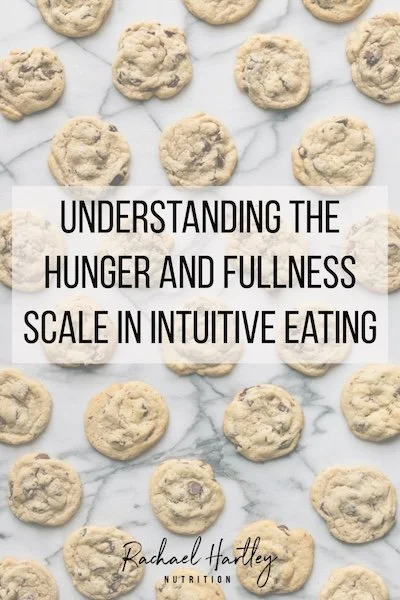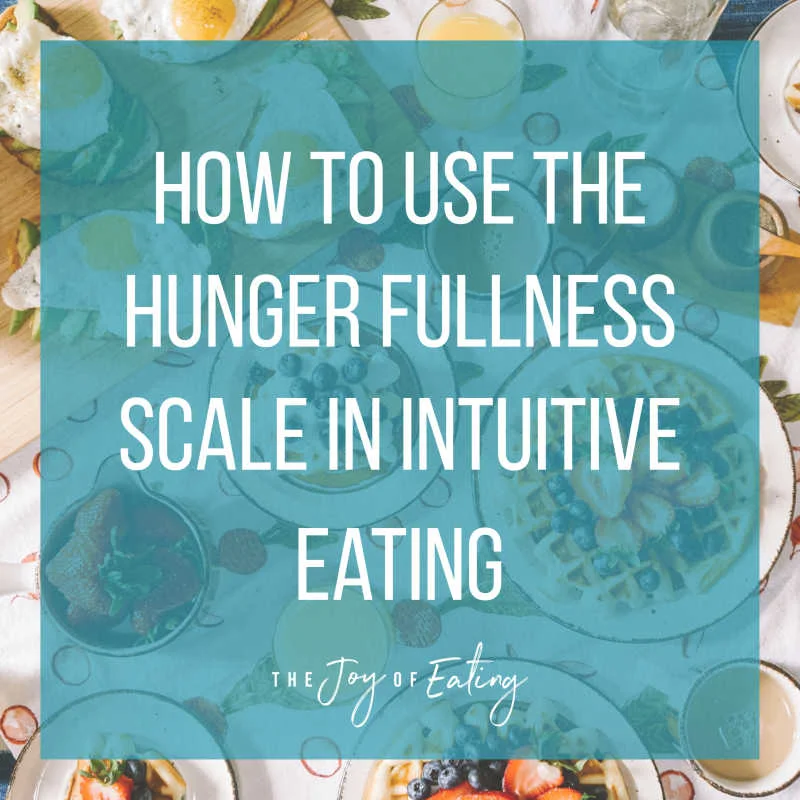f you're familiar with Intuitive Eating, then you know about the hunger and fullness scale, a tool to help you get back in touch with your hunger and fullness cues. This blog post answers some of the common questions and challenges I hear from clients in my practice when trying to apply the hunger fullness scale to their eating.
Read MoreYears of yo-yo dieting and disordered eating can get you out of touch with internal cues, like your body's hunger and fullness signals. Learn how to use the hunger fullness scale in intuitive eating, a tool that can help you can back in touch with your food needs.
Read MoreIn intuitive eating, you hear a lot about hunger. But did you know there are more ways to experience hunger than just physical hunger? This post explores the four types of hunger in intuitive eating - physical, emotional, taste and practical - and how to respond to each.
Read MoreWe’ve all heard breakfast is the most important meal of the day. But what do you do when you’re not hungry? This blog post explores the reasons you might have no appetite in the morning, and gives ideas for what to eat when you have no appetite.
Read MoreUnderstanding the difference between emotional hunger vs. physical hunger in intuitive eating can be difficult, as there’s quite a bit of overlap between the physical and emotional sensations of each. This blog posts teaches you how to tell the difference, and what to do if you’re really not sure.
Read MoreFeeling anxious? You might be hungry! While hunger is typically felt in the stomach, for some people, anxiety can be a signal that their body needs food. This post explains more…
Read MoreIntuitive eating teaches you how to eat when you’re hungry and stop when satisfied, but it’s much more nuanced than that! Learn why it’s OK to eat when you’re not hungry in this post on the role of practical hunger in intuitive eating.
Read MoreIf you’re someone who has tried to diet, only to be foiled by intense hunger cues, you might be wondering why do I feel so hungry when I’m trying to stick to a diet? This post discusses the biological basis of how hunger cues work, and how intuitive eating can help normalize your hunger cues so you’re able to feed yourself adequately and appropriately throughout the day.
Read MoreWondering why am I feeling hungry after eating? Intuitive eating is all about using internal cues, like hunger and fullness, to guide eating. But sometimes Intuitive Eating is taught as a "hunger/fullness" diet, which overlooks the importance of satisfaction, which is an even more important cue to stop eating. Learn the difference between satisfaction and fullness in intuitive eating.
Read MoreFeeling like you can’t stop eating? Honor your hunger is the first principle of intuitive eating, but if you feel like you’re constantly hunger, it might feel extra scary to feed yourself. If you feel like your hunger is out of control, read this post to answer the question “why do I feel hungry all the time?”
Read More










